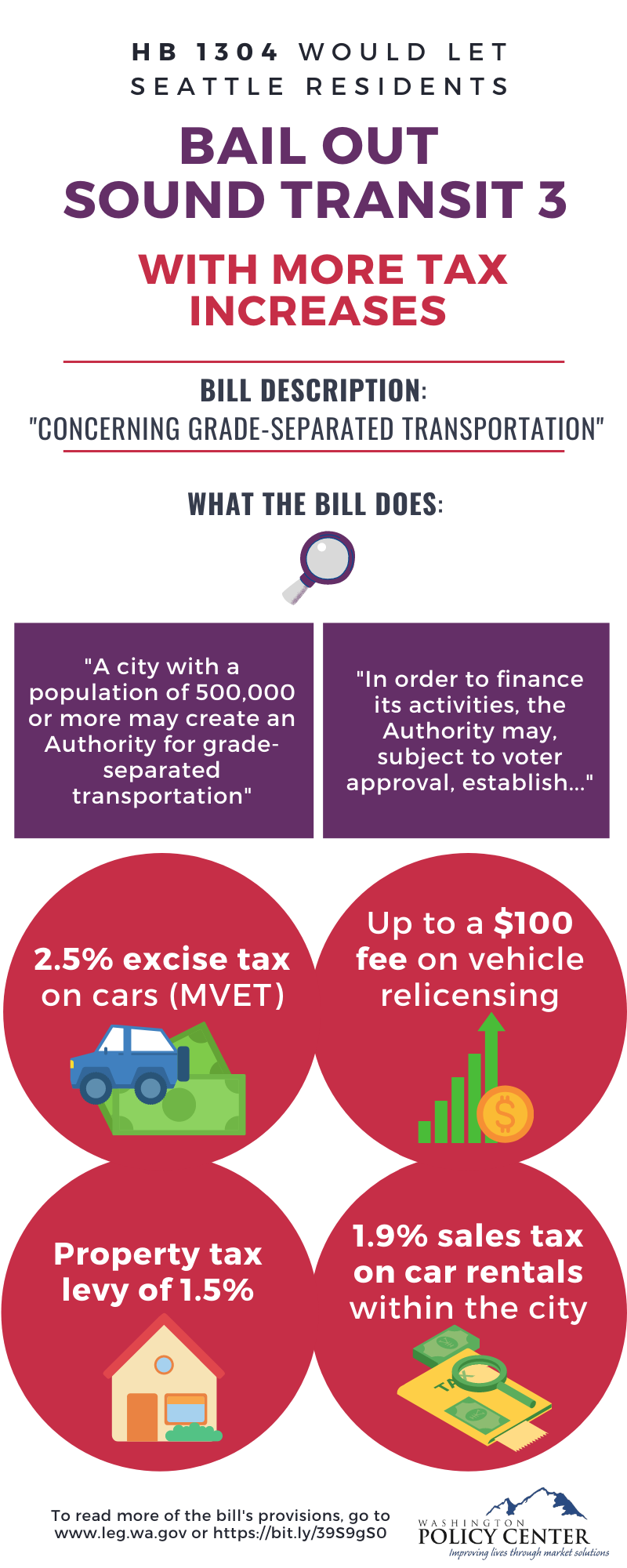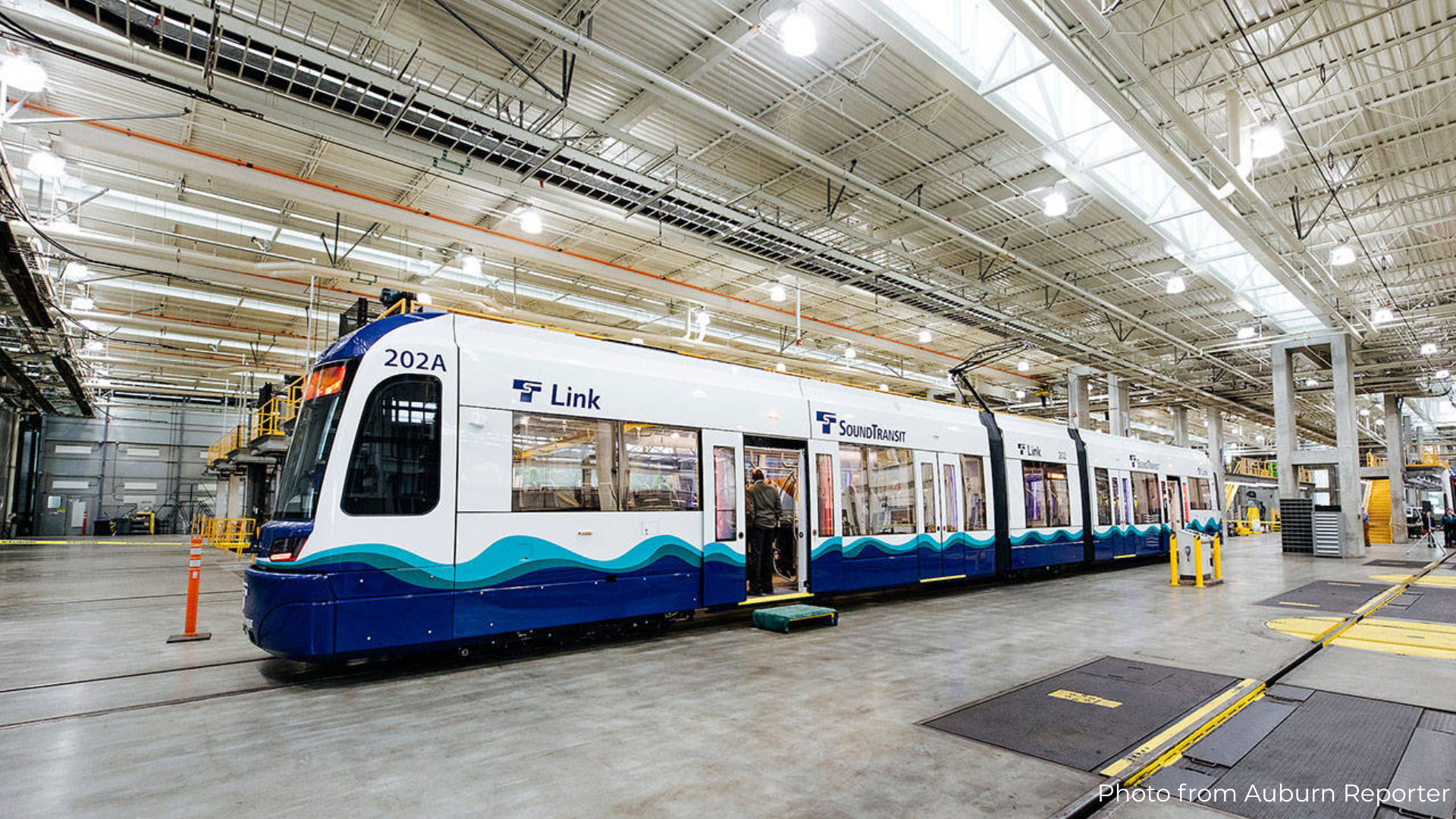There’s a bill scheduled for public hearing tomorrow that seems innocuous but could have costly effects.
The description of House Bill 1304 simply states it concerns “grade-separated transportation.” However, the bill language would allow Seattle residents to effectively bail out Sound Transit 3.
House Bill 1304 provides that a city with a population of 500,000 or more (Seattle) can create a City Transportation Authority for grade-separated transportation, like Sound Transit’s light rail system, and carry out financing plans. The bill authorizes the Authority to impose taxes, subject to voter approval, that include:
- 2.5% excise tax on cars (MVET)
- 1.944% sales tax on car rentals
- Up to a $100 fee on vehicle relicensing
- Property tax levy of 1.5%
You can read more of the bill’s provisions for the Authority here.
As noted by Seattle transit advocates, “the most exciting part [about HB 1304 is it] can help address Link expansion timelines" - including "maintain[ing] and expedit[ing] ST3 projects" and future-proof[ing] ST3 for expansion." They go on to quote Sound Transit CEO Peter Rogoff, who wrote about the need to overcome the $12 billion budget gap COVID has created in Sound Transit 3. Voters approved Sound Transit 3 in 2016, a $54 billion expansion of Sound Transit’s light rail system. House Bill 1304, the blog argues, will help fill that gap to “help keep ST3 projects within the city on track and enable further expansion beyond ST3.”
On the one hand, Seattle voters can certainly vote to bail out Sound Transit and its light rail expansion in Seattle if they want to. On the other hand, the taxing authority this bill would grant may have negative consequences that would be felt by every resident in the Puget Sound region who lives in Sound Transit’s taxing district. Giving Sound Transit additional tax dollars for Sound Transit 3 is problematic for at least two reasons.
First, bailing out Sound Transit with more tax revenue will not incentivize the agency to be more efficient with public money. Sound Transit officials consistently report massive cost overruns and delays – even saying publicly that the most recent $5 billion cost overrun, “while sobering, is not catastrophic.” To make matters worse for taxpayers, the agency is not publicly accountable for those cost overruns and delays because the Sound Transit Board is not direclty elected and board members cannot be removed for their decisions on the Board.
Second, this bill could grant, through voter approval, more money for ST3 – beyond what regional voters approved in 2016 and certainly beyond the taxing authority lawmakers were led to believe they were granting to Sound Transit for all of ST3 in 2015.
Rather than pushing Sound Transit to be a more responsible and accountable agency, this legislation would allow Seattle to reward Sound Transit with more money despite its embarrassing mismanagement of projects throughout the region.
The bill hearing is scheduled to take place tomorrow in the House Committee on Local Government at 10am.







